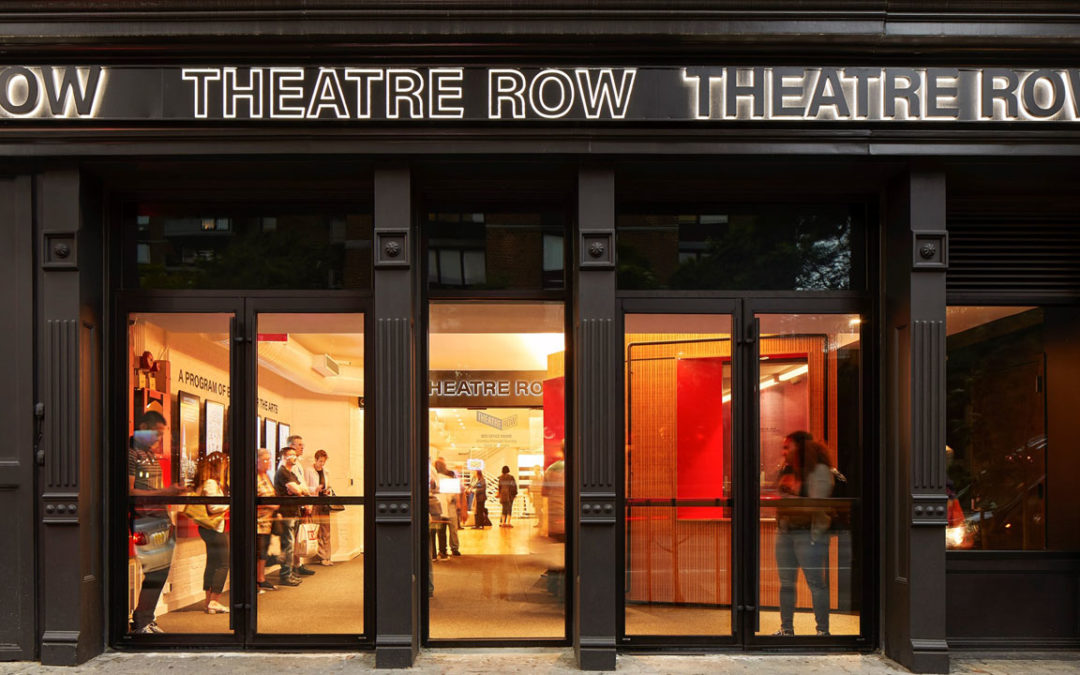
by Robert Bowie, Jr. | Feb 15, 2022 | Featured, Man Machine, Personal, Plays
About a week ago, I could take COVID-19 and its variants no longer. I couldn’t do Netflix anymore. I needed community.
A long time ago, I decided that what makes theater a community — and Netflix not — is the interactive energy of a live audience. But I had a problem now.
If I were to go to live theater now, I would be breaking a promise that I had made to myself almost two years ago.
It was during our final table read of The Grace of God & Man Machine. I had paid no attention to talk of some virus in China. Mind The Art Entertainment had committed to produce my play and soon we would be opening off-Broadway.
That night I bought a steak, a glass of wine, and a single ticket to see Hadestown on Broadway in front of a sold-out audience. Hadestown would provide me that same energy that I would soon be part of when my play would go live off-Broadway.
I was beyond happy.
The next day as I took a train back to Baltimore, I realized something terrible was happening. Pretty soon thereafter, theaters started to close and slowly an unconscious darkness opened in me.
My hope of a second life as a playwright, which I had dreamed of even as a boy, so unfairly started to drift away, week after week and then month after month. But more horrible was the loss of not being a part of live theater.
I made the promise, and over the months I hardened my resolve, that I would not go to the theater until I could be part of that collective energy. I refused to settle for some anemic second-best with half-empty seats.
So why did I nonetheless decide last Wednesday, February 9th, to go to a new play: Behold, A Negress by Jacquline E. Lawton, at Everyman Theatre in Baltimore? Why was I breaking my promise when the theaters were not fully open?
What was it, really, that I so desperately missed?
I chose to go to Everyman Theater because it always has been a theater bustling with people and when the lights went down every seat was always filled with a loyal subscription audience. I had been going there for opening nights for over 30 years. I could count on them. Somehow, they could always seem to deliver that energy.
The day before the performance I received a phone call reminding me that I must bring evidence of my COVID vacations and booster and wear a mask the entire time I was in the theater. I confirmed that I had gotten all the vaccinations and would be wearing a mask.
It seemed to foreshadow my disappointment and to add salt to the wound.
When I entered, I had my mask on and my vaccination records ready. An assistant at the door checked off my name.
I noticed the list was not extensive.
As I entered the lobby it was strangely quiet. There was no familiar group of chatting people lining up for a glass of wine before the performance.
When I entered the theater, even after social distancing there were a lot of empty seats.
I looked around and there was a pit in my stomach. This wasn’t going to work.
Before every theater performance, I have a ritual. I observe the set and the stage and try to imagine how different it will be when I look back at it after the play is over and the actors are taking their bows.
I looked at the set and then gave it a second look. I was intrigued by how perfectly it had been designed and how beautiful the high ceilings and colors were in a post-revolutionary Paris drawing room and how carefully an artist’s easel had been displayed upstage center.
The set alone had caught my attention. It felt good. I had inadvertently crossed the threshold and now I did not want to be disappointed.
The lights went down. The music picked up and the play began.
The first of the two lead characters enters in a stunning dress and without a word, in a minute, establishes her character though action alone. The second lead enters, also in a stunning period piece costume, to establish her character and the framework of the play with minimum exposition. I was hooked.
Artfully, everything was in place.
I will give nothing away other than it was a 90-minute play with two principal actors and one supporting character. The two leads reveal a multifaceted relationship through many artful twists and turns and even briefly use dance to create the excitement of creating a portrait to change the political mind of Paris.
The play itself is about the character it takes to risk one’s self and one’s art form to save the moral authority of a culture.
Wasn’t that what this theater was actually doing by performing this play at all?
Slowly, something wonderful and unexpected rose up in me as I looked back at that stage as the actors took their bows before a small but very enthusiastic standing ovation.
It was pride, and then deep respect for this theater that would protect its patrons but also not compromise the quality of any aspect of a magnificent production, despite the cost.
It was that but there was also something else.
What was this unique little community?
The actors playing the roles, the director and tech professionals creating the atmosphere, and the willing suspension of disbelief and presence of the audience?
Then I laughed.
No other community would have a catchphrase as its answer: “The show must go on.”
I had foolishly demanded the fiction of perfection and had missed the perfection of the thing itself.
I left laughing and looking forward to rejoining this little community of feral souls who create, with a live audience, the sustaining vision for its larger community, by example.
November 22, 2022–December 20, 2022 at Theater Row, 410 42d street NYC, The Grace of God & The Mind Machine will finally open.
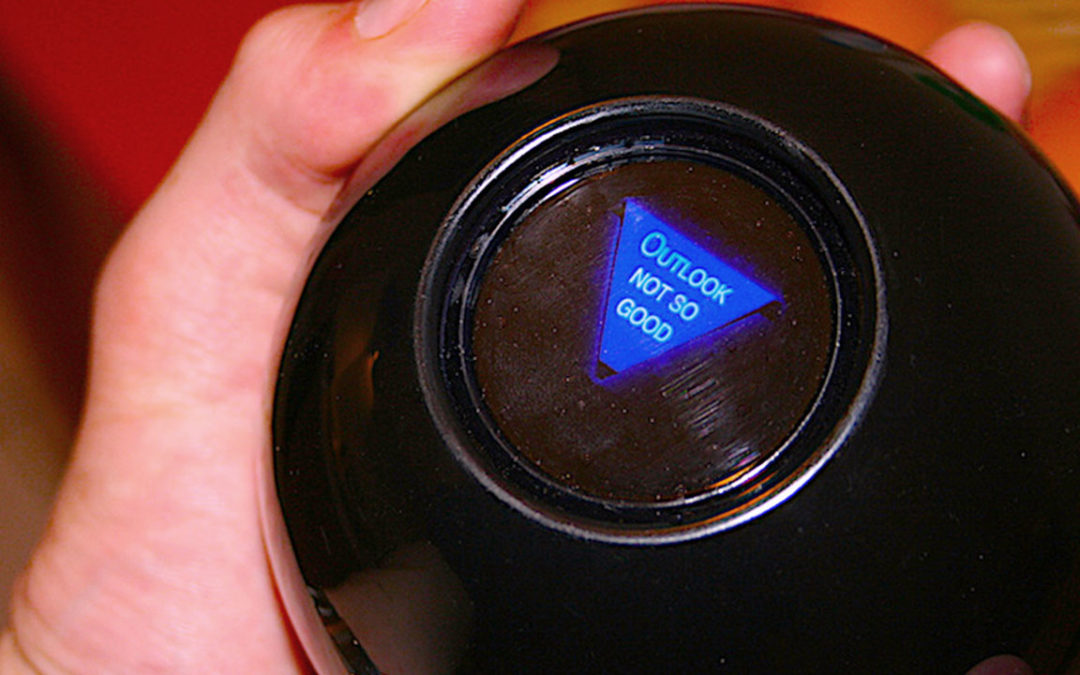
by Robert Bowie, Jr. | Feb 8, 2022 | Featured, Personal, Poetry
Sometimes my subconscious rises out of its darkness to address questions I would prefer to avoid as I try to weave my past into the history I prefer to believe.
I generally succeed in avoiding these intrusions by being more focused on some other project.
My subconscious tends to work like the “Magic 8 Ball” of my childhood. When confronted with a question and tipped upright, its answer will float up to its little glass window.
Almost 20 years ago, if I had asked it: “Will I be divorced in four years?” its answer could have been: “As I see it, yes” and I would have laughed at the absurdity of that answer and asked another question like: “But don’t I love my family?” And its answer could have been “Yes definitely.”
Almost 20 years ago, I wrote a sonnet a week for a year in my effort to master the sonnet form. For 52 consecutive weeks, I paid little attention to anything other than my desire to get the rhyme scheme right (abab/cdcd/efef/gg) in 14 lines of roughly iambic pentameter.
My mind was driving the school bus.
My subconscious went to the playground.
A few years ago, after I finally committed to being a professional writer, I went back to look at the sonnets and thought of them as individual weekly efforts. But then last year I reread all 52 from beginning to end at one sitting and discovered something very different.
The 50th sonnet, the third to the last one, stopped me in my tracks. It was a memory about how my first wife and I fell in love as we walked to work. It is a beautiful love poem but ends with odd and troubling lines:
…How could this love go wrong?
Our lives are drawn to a collective center.
The buildings are the highest when we enter.
When I wrote those lines, we had been married for over 20 years, but four years later our marriage would end — to a large extent because we had been drawn apart by our ever-increasing professional workloads.
We lost the very real love we had when we first married and for years after.
Why?
“The buildings are the highest when we enter.”
It answered the question: “How could this love go wrong?”
It was all in there, but I had been working on some other project instead of us.
I second-guessed my conclusion, but I immediately started from the beginning and reread all 52 chronologically again.
All of a sudden #50 was not just a single love poem that recognized the hidden demise of love and marriage. All of the sonnets had loosely related overlapping themes, but they were also independent observations all from the same universe.
They were little standalone vignettes. Little stories floating to the surface, from skinny-dipping advice to scuba diving with sharks to giving up smoking.
This was the subconscious playing in the playground.
What intrigued me most about this discovery was that while the objective mind had been obsessed about form and order and had been locked into that project, I was quite unknowingly having a different conversation that I was denying, with my unruly and more interesting subconscious.
“An Accidental Diary” is a very different kind of book because it is a story told in 52 perfect independent little chapters that are less than one page long. A reader is free to connect the dots or to read each sonnet separately as a world unto itself.
And hey! What a deal!
You get your money’s worth when you buy it. It is both the Magic 8 Ball and the questioner as two different books all rolled up into one.
You can buy it for Kindle or get the paperback within five days. Any purchase permits you to provide a review on Amazon if you are so inclined.
https://www.amazon.com/Accidental-Diary-sonnet-week-year/dp/B09NGXSVM5/
Will you enjoy this book? “It is certain.”
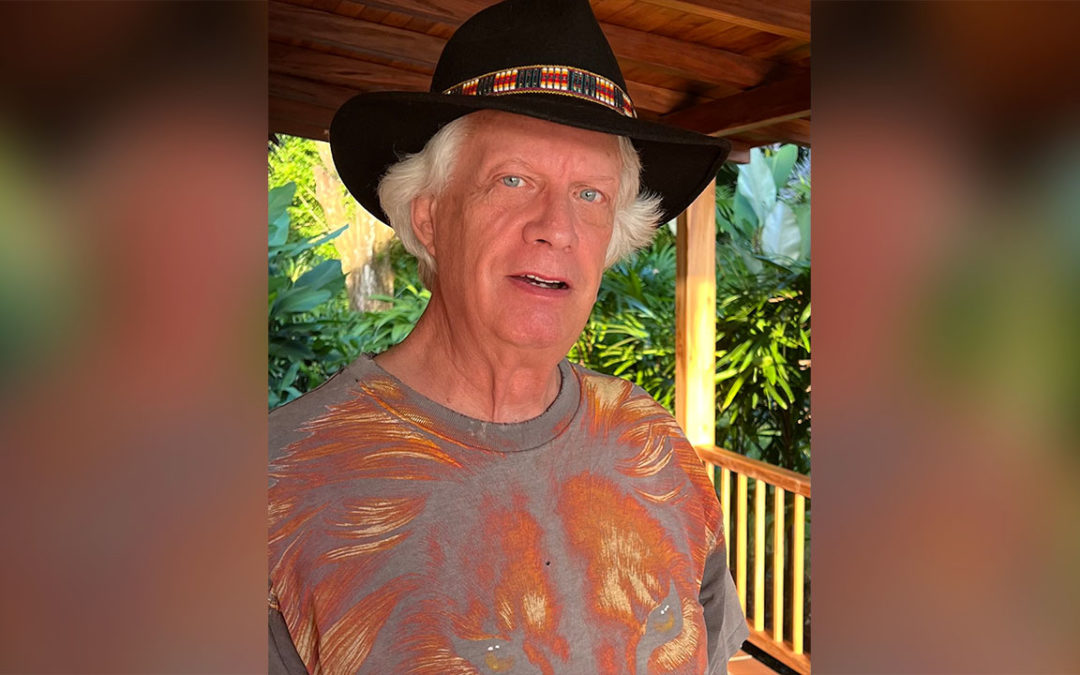
by Robert Bowie, Jr. | Feb 1, 2022 | Featured, Personal, Travel
For the last two weeks, I have posted about a trip I took 35 years ago to Drake Bay along the uninhabited rainforests of southwestern Costa Rica. I had met a young boy, Raphael, who took me scuba diving and fishing for little over a week while I stayed at an isolated lodge I had found down there. On the last day, I told him he could go anywhere he wanted and I would go with him.
He jumped at the chance to go way out into the Pacific to fish for the giant pargo in a tiny Boston whaler. It was the most frightened I have ever been.
Last week, during a trip to Bosque del Cabo, two hours south of Drake Bay, I committed to seeing if I could find Raphael. The driver who picked us up at the little airport at Puerto Jiménez agreed to take Susan and I up the coast through the rainforest if I could first locate Raphael.
Within two days, the assistant at the lodge had found a lead that Raphael, who would be around 55 years old now, had helped to build one or more of the new lodges that now populate Drake Bay. The assistant made phone calls and emailed these new lodges over the next few days, but we were still not able to locate him
With only three days to go, I booked an offshore fishing trip out of Puerto Jiménez to make my own inquiries about Raphael, and to determine how far we really had gone out to sea before we lost sight of land that day and night.
We left around 7 o’clock from Puerto Jiménez in a covered boat about three times the size of the Boston whaler Raphael had used. The captain was about 35 and his mate was about the same age as Raphael was when we went out to sea years ago.
There was only one other boat going out that morning. The two were in radio contact in search of tuna and sailfish throughout the morning. We watched for the gathering of birds diving into the ocean, feeding off squid or schools of fish driven to the surface by the dolphins. These schools would bring the tuna and sailfish, which we wanted to catch.
It was a beautiful day. The cumulonimbus clouds climbed into the sky over the shoreline as we traveled out on a slow rolling tide. Around 11:30, we hooked an 80-pound yellowfin tuna which took about 25 minutes to land.
The shoreline was still visible at 10 miles out. I asked about Raphael, but the captain didn’t really know anyone all that well as far north as Drake Bay.
Before we left, I had asked the resort owner’s assistant to keep trying to locate Raphael. My time was running out. I had only one more day before we had to leave at 5:15 in the morning to get on the only plane leaving Puerto Jiménez for San Jose, take the mandatory COVID test at 8:00 to ensure we could return home on our Delta flight at 2:30 that afternoon.
As we arrived at the dock to meet our ride back to the lodge, I unexpectedly saw the assistant was also at the dock. After we loaded the tuna into the back of the truck, the assistant was strangely quiet as she rode in the passenger seat next to the driver. From the backseat I asked if she had been able to set up our meeting at Drake Bay. She paused, turned her face toward me, and winced as she looked back at me. “He is dead.”
After the long and bumpy ride back to the lodge, I asked Susan wouldn’t it be easy just to lie about that?
I decided that I would pay our bill early, rather than before our exit the following morning. I wanted some time with the assistant so that I could cross examine her indirectly about the seriousness of her inquiries.
When we met, she went very carefully over the bill and the tips we had designated for the staff. She meticulously double checked the math in a way that sadly made me realize how careful and professional she was.
I asked her about what her most recent research had revealed and she confirmed the care that she had put into trying to find Raphael. She pulled out her phone and played back the voicemail reply she had gotten from an old guide who had retired from her work in Drake Bay years ago. The assistant translated each sentence from Spanish into English as she played it back.
The caller explained she had been in the back of a taxi cab in San Jose several years ago with a driver who asked where she was from. When she said Drake Bay, the driver told her he had grown up there. He said his father was a carpenter who had built several buildings as they went up around Drake Bay, including the first lodge that had been constructed there in 1985. His father and mother were one of the first families to populate the southwestern stretch of the Pacific and rainforest around Drake Bay. His father’s name was Raphael.
I persisted and told the assistant I would be willing to meet the cabdriver at the Delta terminal in San Jose after my Covid test. I would feed him lunch and also give him about $100 in colóns as a friend of his father in the hopes that he would meet me.
She agreed to keep trying.
The next morning, we took the early morning flight, did the Covid test, and checked the bags, but I did not go through security at the international airport. I sat on the floor next to the Delta desk.
I waited and waited at the Delta terminal until there was no time left. I went through security and as I boarded the plane to leave, I gave my remaining Costa Rican currency to an unexpecting vendor and asked nothing in return.
It is so easy to lose people and so hard to find them.
Even if I had been successful, I’m sure his son would have pocketed the money and returned to his cab and his daily life.
Thirty-five years ago, there was something courageous and determined about Raphael’s refusal to cut the line and return to safety — and I had refused to stop him.
Looking out the plane window as we took off, I thought even when he is completely forgotten he will be safe and respected in my memory.
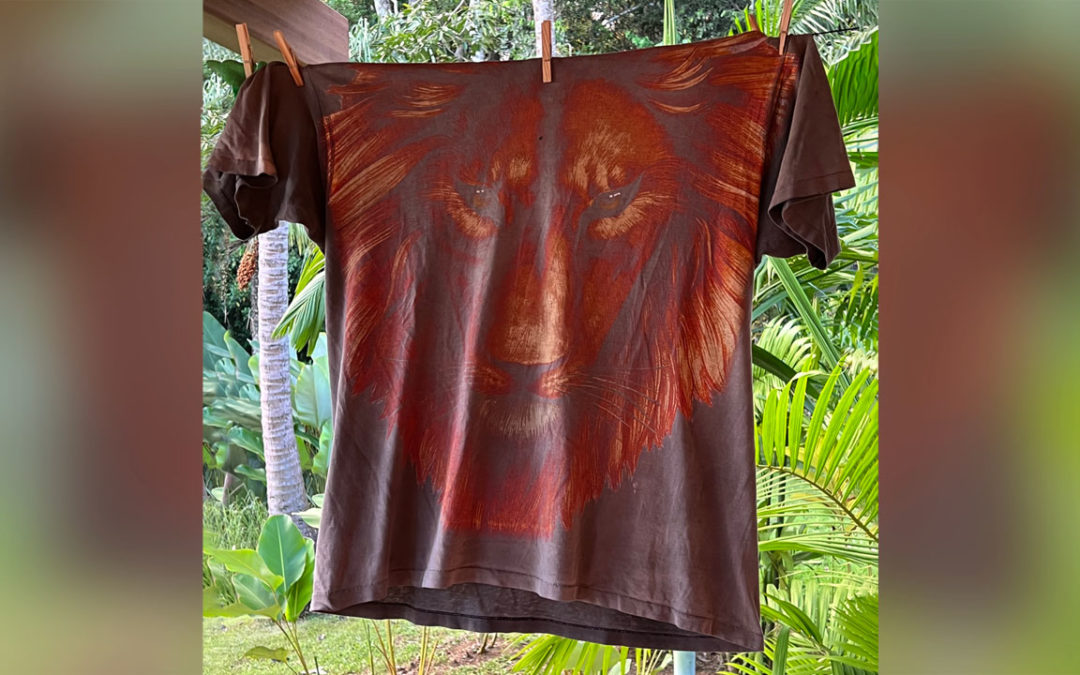
by Robert Bowie, Jr. | Jan 25, 2022 | Featured, Travel
Last week, as I anticipated our visit this week to the southwestern Costa Rican rainforests, I posted about a fishing trip that I had taken from a solitary lodge down there over 35 years ago with a guide named Raphael.
We had become friends back then because we took risks and, on the day before I left, shared an incredible, terrifying adventure. We went way out into the Pacific and into the night in a little Boston Whaler and almost didn’t find our way back.
But people get lost when you return to civilization and you get sucked back into the day-to-day and the years compound.
A friend responded to the post suggested I try to find Raphael on this trip. I decided to try to find Raphael if I could. It was a real long shot. All I had was his first name. Would he still be there? Would he even remember me? Was he even alive? Basque del Cabo, the wonderful place where Susan and I are staying, is about two hours south of Drake’s Bay where I met Raphael.
Yesterday, we flew south from San Jose to the little air strip at Puerto Jimenez and were picked up by a four-wheel drive Jeep to go further south to our destination.
Could I even find a way to get to Drake’s Bay if I found him?
On the ride, I recited my story of my trip thirty-five years ago to our driver and asked if there was any chance we could locate Raphael after all these years. The idea piqued his interest and he volunteered to get me to Drake Bay if we could locate Raphael.
When we arrived at the lodge, I told my story again to the owner and he also was intrigued and immediately called on his assistant to see what she could find.
After some preliminary research, they told me what I expected. The expat who owned the place I had stayed in at Drake’s Bay had died and the place had been sold but was still around. Over the last thirty-five years, a few other lodges were constructed on Drake’s Bay. Perhaps Raphael had stayed to helped build them and was still around.
Yesterday after breakfast, I was told they thought that they had found Raphael but were waiting for confirmation. If they have the right Raphael, he worked as a carpenter to help build the new properties. He was about 55 years old, but they had not determined if he was still living down near the bay. They said this man had a son who was a cab driver in San Jose. Perhaps he had moved up there.
Before we left Maryland, I had asked myself how could we recognize each other and it occurred to me that I had saved the raggedy old lion shirt in which I had fished and scuba-dived and pretty much lived in down there. I photographed it and packed it just in case I thought I found him.
I’ve got a driver and my old shirt ready and a lead which seems promising.
It is so easy to lose people and so hard to find them.
I should know in a day or so.
I will report the end of the story in next week’s blog, when Susan and have returned to our snowy, below-freezing home in Monkton.

by Robert Bowie, Jr. | Jan 18, 2022 | Featured, Personal, Travel
As a young man my heroes proved their courage by welcoming and taking on great risk. I am amazed at how my heroes have changed over time.
In a few days, Susan and I will fly to the Osa Peninsula and the rainforest of southwestern Costa Rica. This will be the first trip there for Susan, but for me it will be a reunion with a place where I experienced real fear for the first time in my life.
In the late 1980s, I decided to go to Costa Rica to find the deepest rainforest I could find. I wanted an adventure and to be left alone.
I flew to San Jose, spent the night and got a little plane to fly me to a grass runway to be transported by a crazy American expat in his little boat to go down a muddy river to the Pacific and then south along the virgin jungle coastline to a remote lodge he had put together in the Corcovado rain forest.
The place was run by a small family for the expat. I knew I was in for a great adventure because the expat had a huge untrimmed beard and claimed he had a wife in Texas and a wife in Costa Rica and immediately told me, quite confidentiality, that he was an operative for the CIA. He had some issues. The place was empty except for me during the entire week I was there.
That is where I met Raphael, the teenage son of the farming family that managed the place when it was not the rainy season. He was assigned to take me fishing and scuba diving in a tiny Boston whaler.
Raphael had to pump the scuba tanks with a gas-powered compressor and catch our bait before we went out each morning to dive to find shark caves, fish offshore past Caño Island, or to go up the rivers to live within a world of howler monkeys that threw sticks at us from above and massive blue morpho butterflies and macaws that flew around us as we traveled into the rainforest.
Rafael did not like diving because he was afraid of sharks, which he claimed had killed a married couple the year before. I fashioned myself as a bit of a daredevil so I told him I was not afraid.
On my last day there, I told Raphael he could go wherever he wanted and I would go with him. Neither of us knew the other’s language but he told me he wanted to fish for giant pargo offshore out way past the island, where the drop off brought the big fish to feed in the current. All we had was light tackle. These fish can grow to as much as 40 pounds and tend to go deep and run. I’m pretty sure that Raphael did not share with his parents what we were going to do.
We packed extra water and cold beer and some sandwiches. He brought an extra tank of gas. We left in the late morning and easily caught several mackerel for bait. Rafael cut them in half and secured them on our hooks as we motored out into the Pacific. We went way out further than we had gone before. When I lost sight of land for the first time, I became a little afraid. After a while, Raphael switched the gas tanks.
I was at the bow of the boat and Raphael was back at the motor. We sat silently for several hours without a bite. As the sun started to go down, I wanted to go home. We had not seen land for a couple of hours by now. I became a little more afraid as we drifted with the current but I kept it to myself.
As the dark came, I waited and then looked back at him but his rod was bent over and when he looked back he grinned and said one word: “Grande!”
The fish was running deeper and deeper and heading further out into the Pacific. Now I was frightened, but told myself it could be I was just out of my element and I just should trust Raphael.
Raphael, on his unexpected day off, was too excited to give in to the fish. The stars started to come out and we kept being pulled out to sea. The night came, and Raphael kept reeling in the fish and then letting more line go out until there was no line left but his giant fish would not tire as it kept pulling us deeper and deeper into the dark.
The sea was calm and with the dark I had no sense of which direction the land was anymore. The moon rose in the night sky. There was a blanket of bright stars above us now and nothing but silence and the lapping of the gentle waves against the side of the boat until the line broke.
As we prepared to go, we threw the remaining mackerel overboard and the phosphorus all around lit up as our discarded bait was devoured by surface fish.
Raphael pulled the cord to start the boat but it wouldn’t start. He tried and tried again but the motor would not start. We had already used the extra tank of gas to get us out there. We were drifting in the dark with the stars above us as we were taken by the tide.
I said nothing. I was deeply afraid, but was I wrong to be? I didn’t think so.
Raphael tried and tried again until finally there was a sputtering and the engine died and then when Raphael tried again it started. He cautiously revved the engine several times and after examining the stars he then turned the boat and headed toward what I hoped was home.
Despite it all, it was stunningly beautiful. As we skimmed across the water for more than an hour, we lit up the phosphorus around us. Dolphins joined us on both sides of the boat with the glowing phosphorus trailing behind us as we careened over the water with the stars stretched over our heads.
Raphael kept checking the stars.
I was certain we were lost but Raphael refused to show fear. Was I overreacting? Finally, a dim light appeared in a shadow that must be the edge of the rain forest. The lights of the little lodge were all on and there were flashlights coming from the little dock.
As we got closer, I could see several people standing silently on the dock holding the flashlights and pointing them out at the sea. We had no running lights so it appeared they were guiding us into them. We slowed the boat and pulled up to the little ladder.
I felt foolish that I had been so afraid and accepted the hands offered to me as I climbed the ladder and stood on the dock.
Raphael tied up the boat and when he climbed the ladder his mother greeted him and slapped him harder than I’ve ever seen anybody hit before in my life. His family had been waiting ever since the sun went down. I was later told it had been hours of uncertainty.
When I visit Costa Rica this time I am sure that the virgin rainforest will have other lodges now but I have also changed. My heroes now are common people as they almost invisibly care for others.
I have come to understand better now the fear that boy’s mother felt as she waited on the dock in the night and shined her flashlight out at the sea.

by Robert Bowie, Jr. | Jan 11, 2022 | Featured, Personal
I believe in those little miracles that go unnoticed unless you choose to recognize them.
This is about one of those little miracles.
Like many people this year, our Christmas was canceled when my wife Susan and I realized we had COVID. Our children and grandchildren and friends could not be put at risk.
I was unspeakably sad as I sat in a silent house surrounded by wrapped Christmas gifts that would remain unopened and visible for the rest of the day.
We survived. We went out to the driveway masked to deliver Christmas gifts to Susan’s children and their girlfriends, who are thankfully local. After New Year’s when our quarantine was over, we were fortunate to have my son visit with his girlfriend, which was wonderful. We will be driving gifts up to Connecticut to my daughter and her husband and my granddaughter in about a week. We survived.
But then one of those little miracles happened.
January 6th is the 12th day of Christmas which traditionally marks the end of that holiday’s celebrations. This year, that day also marked the one-year anniversary of the assault on the Capitol.
But it is also the birthday of a lifelong friend I met in law school over 40 years ago. He is now seriously disabled and not easily able to leave his house. Because of COVID, he was also unable to invite his family and friends to his home to celebrate Christmas or his 70th birthday. But his children and their loved ones spontaneously organized a surprise Zoom call to wish him a happy birthday.
The gathering on Zoom included not only his law school friends but also friends of all ages, backgrounds, and political beliefs. It was huge.
It is hard to feel joy from a Zoom call, but in this case, it was palpable and undeniably warm and beautiful. At the center of it was a man who has transcended difficulties with tenacity and joy and has always lived a passionate life of kindness and commitment.
The next day, I called him so I could talk to him one-on-one. During that call, he told a story quite accidentally.
He owns a beautiful little house near Annapolis, which he can only stay in during the summer because it is too difficult for him to travel back and forth.
A week or so before his birthday, he had been asked by a teacher at a special school if he could perhaps open up his summer house to help a troubled middle school student regain her sense of security in a new environment after a difficult event in her life.
My friend didn’t think twice. He told the teacher to open the house and turn on the heat and use it for as long as it could be helpful.
As he told the story he offhandedly said, “That was the most beautiful present I got for Christmas or my birthday.”
For me, selfish and sad in a house empty during Christmas, this brought what Christmas is, in full force, back to me.
He had received nothing and given instantly from his heart.
After the call I hung up and was surprised to find myself crying.
On the last day of Christmas, my friend had reminded me what Christmas is supposed to be: a moment of reawakening and joy in a forever troubled world.
My friend had given me that gift.
It was one of those little miracles.
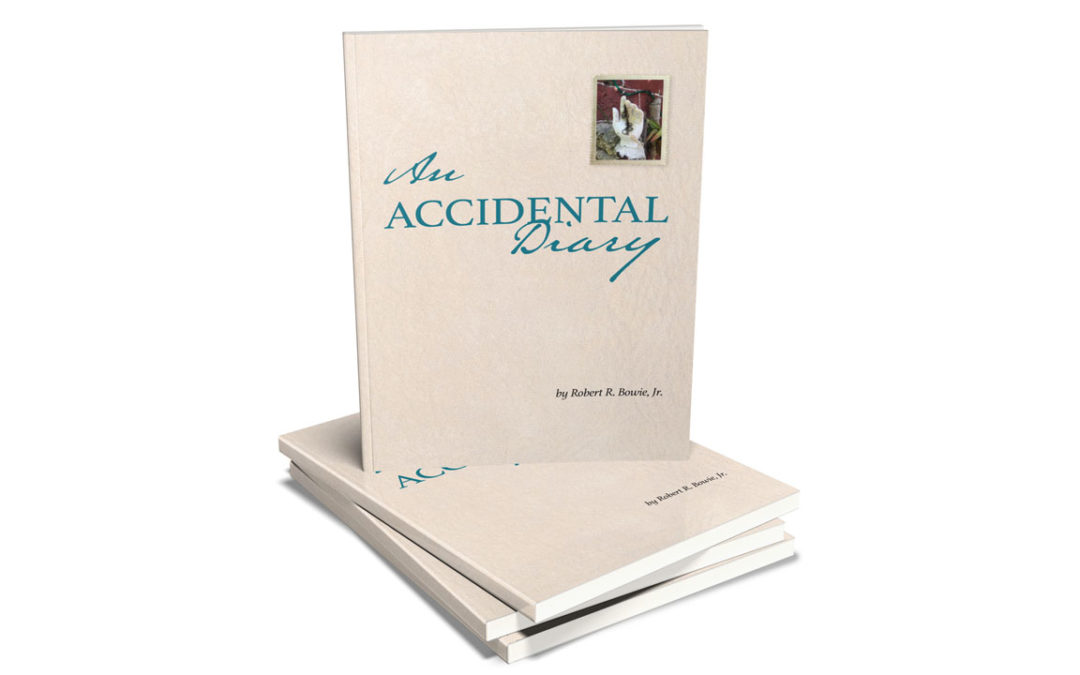
by Robert Bowie, Jr. | Dec 29, 2021 | Personal, Poetry
There are so many ways to see what’s different about the same thing.
The day after Christmas we got a light dusting of snow, but it was snow!
The same day I learned that my Amazon book, An Accidental Diary, was finally for sale in paperback and could be delivered by December 30th.
The hardback and Kindle have been on sale for two weeks but since Amazon prints the books they sell, the hardback wasn’t available for delivery until mid January. I couldn’t wait. I wanted to hold my book in my hands so I bought a copy.
It is amazing to learn how many different ways there are to see the same thing.
An Accidental Diary is a sonnet a week for a year, but the book wasn’t conceived of until almost 20 years later when I read each week’s entry sequentially and I discovered it really was a wild subconscious diary created over a year of transition.
It is really a game of hide and seek. It was what I had kept hidden from myself back then and what years later would happen: fond recollections and musings on loss, lust, love of family, my fear of dying alone, a sad divorce and, back then, even efforts to quit smoking.
It was drawn from a grab bag of everything in my life in order to meet a Sunday night deadline of a sonnet a week for a year. The book’s introduction defines the scope but the book does it best.
As I was waiting for my book delivery and thinking about what to write here today I looked out at the remaining snow and I wondered how this little collection of often humorous poems would introduce itself and I was amused at how the first sonnet does exactly that.
There are so many ways to see what’s different about the same thing:
City Snow
From a four o’clock sky the first snowflakes fall
To settle down on trafficked city streets.
Each snowflake falls separately, till all
Conspire to hide the city like a secret.
The last street lights go on, and the snow reflects
Upon the domiciliary landscape.
The more snow falls the less you really expect
The city to be what it’s supposed to be:
It becomes a beautiful blinking shape,
An image of slowing inactivity,
Slowing into snow drifts. It snows very late.
A pronouncement of peace subdues the city.
The drifting snow controls the city violence
With a voice made entirely of silence.
Here’s a link to get the book and give it a read if you are so inclined:
https://robertbowiejr.com/booklink/
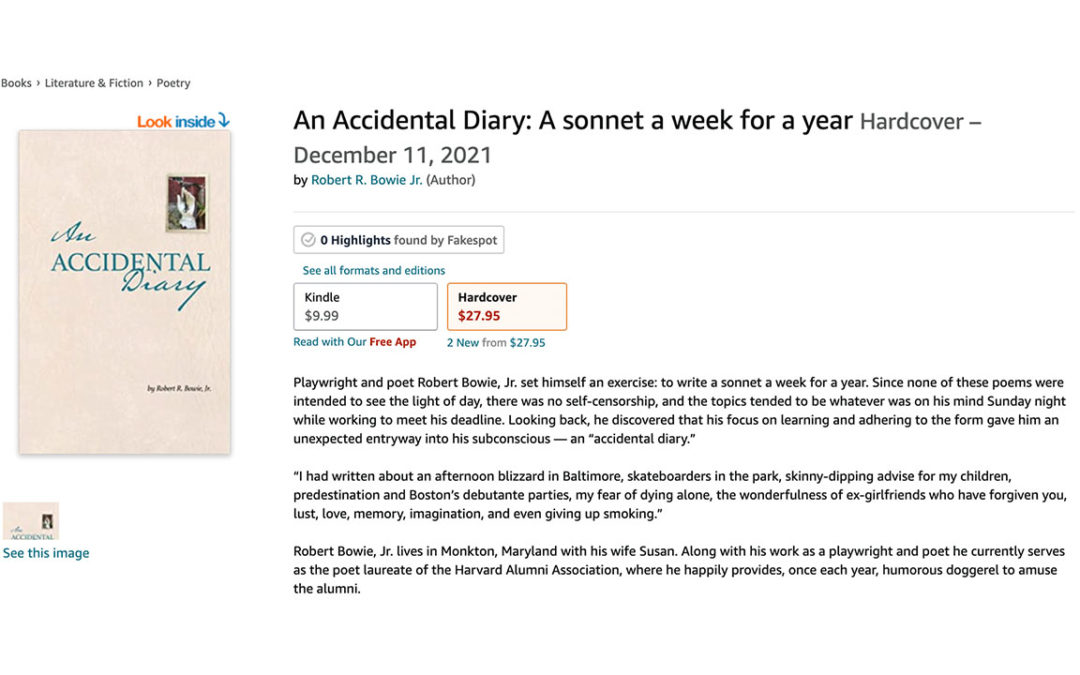
by Robert Bowie, Jr. | Dec 15, 2021 | Personal, Poetry
Almost a year ago I posted “Santa” as a single sonnet to celebrate the season and yesterday it became part of a book.
An Accidental Diary has been published!
Now Santa is 1/52th of “An Accidental Diary: A sonnet a week for a year.”
I am both surprised and extremely proud of my unusual book.
Yesterday, I got notice that the hardback and Kindle editions are now for sale on Amazon. The e-book version, I understand, can be read right away. The hardback is also available now, but will be delivered in January.
https://www.amazon.com/Accidental-Diary-sonnet-week-year/dp/B09NGXSVM5/
(If you’d like a personalized signed copy, reach out to me by email.)
As an old geezer I have no fear of repeating myself, so no matter what your religious beliefs may be, I offer you this my self mocking repeat, yet again to make you laugh and yet again to say thank you to each of you.
Santa
Like a massive multicolored parachute
His boxers have collapsed upon the floor
Slightly south of a wrinkled Santa suit
That was left just outside the bathroom door.
A bunch of imagined elves in repose,
Smokin’ cigarettes, feet on the table,
Hangin’ and laughin’ ’bout Rudolph’s nose
Are lovin’ life as only elves are able.
Another Christmas is, at long last, past
As the fat man shampoos in the shower
And thinks of golf and summer thoughts at last.
Who’s this metaphor for redemptive power?
An old fat guy driving a sled with gifts?
A father at midnight is what it is.
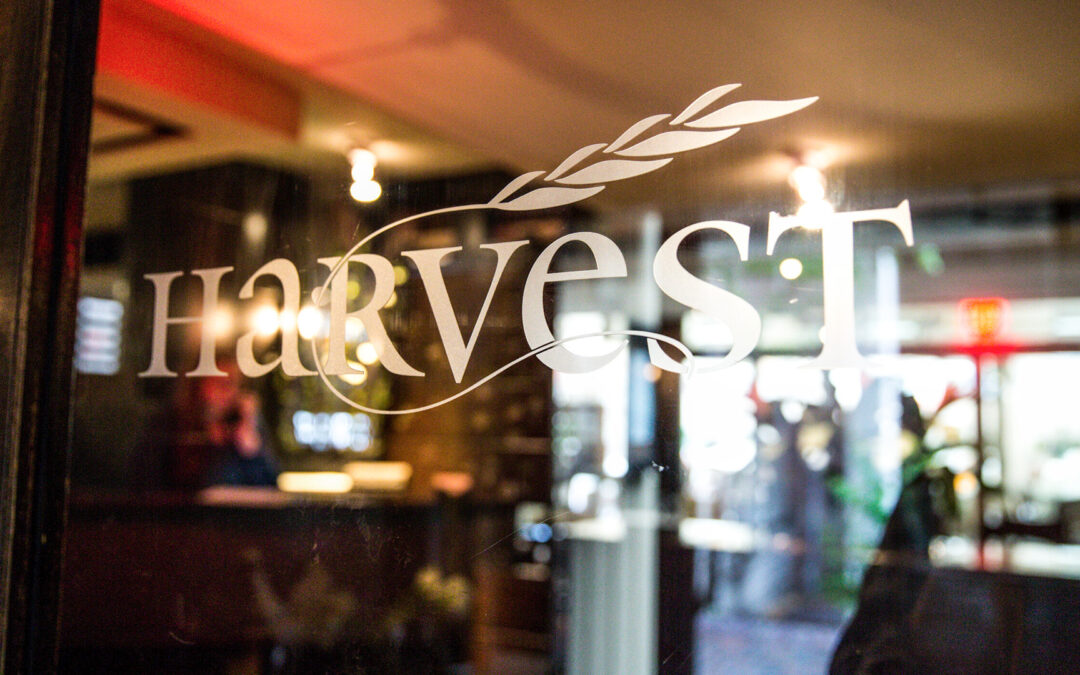
by Robert Bowie, Jr. | Dec 7, 2021 | Featured, Personal, Poetry
I am learning to trust and believe in random spontaneity!
Although I have been blessed with many friends, since I have committed to writing full time I have been painfully aware that I have few friends who are poets with whom I could converse.
The stars aligned perfectly last week when something wonderful happened. And then things just kept getting randomly better and better…
I had just gotten five copies of the final draft of my first book of poems, An Accidental Diary, from Kerry Sharda, my wonderful book designer. All of a sudden, the prospect of publishing became very real for me. So last weekend I took action.
I booked an impromptu trip to Boston to get advice on the book from a friend and two professors I adore about publishing this first book of poems. I then quite unexpectedly got to meet two poets I had previously never met but greatly admire.
I also had been waiting throughout the pandemic to congratulate Belinda Rathbone on her new book,
George Rickey: A Life in Balance, about the life and work of the famous kinetic sculptor.
I called Belinda hoping to meet her and get her advice but she told me that she was on her way to Scotland. After I told her about my mission, she told me that I should meet Lloyd Schwartz and Gail Mazur, both frequently published and very well respected poets, both of whom were her friends.
I jumped at this unexpected opportunity. How could this be getting better and better? I had their books and decided to bring along the most recent books of new and selected work, Who’s On First by Schwartz and Land’s End by Mazur, in the hope I could get them autographed.
We agreed to meet at Harvest, a restaurant in Harvard Square. I decided to be early but recognized Lloyd from his book cover photographs as he entered the restaurant and said, “I figured that must’ve been you because you were carrying all those books.”
Shortly after we were seated, Gail joined us and we talked for over two-and-a-half hours. We had an amazing link: We had all known the poet Elizabeth Bishop. I had only been her student once but they knew her well and Lloyd had written his PhD thesis on her and was a scholar of her works.
In addition, during our conversation I revealed that Robert Pinsky’s translation of Dante’s Inferno was a favorite of mine and Gail and Lloyd both told me they knew him and that Gail’s late husband had done the remarkable artwork for that book.
After the lunch crowd had emptied out and we finally left, Gail offered to walkover to The Charles Hotel to show me some of her husband’s works that were prominently on display as complete panels on the walls. They were as amazing as the illustrations for Pinsky‘s Inferno.
This was a remarkable weekend for me because though I love my friends I have painfully few friends who are poets.
To be surrounded by these wonderful creators as we freely talked about overlapping themes was overwhelming for me. The two were longtime friends and both agreed that creativity requires interchange and friendship to nurture artistic endeavor.
We agreed to meet again when I next came to Boston. I felt welcome and included and re-dedicated to this, my new and ever exciting profession.
It was all a spontaneous accident, which I come to believe more and more is what art and life is.
I have so much more to do.

by Robert Bowie, Jr. | Nov 23, 2021 | Featured, Personal
This is the time when we gather together and stop to appreciate each other, grateful for the friends we share and the bounty of the life we have. It is a shared life on this planet.
We are particularly thankful in beautiful Monkton, where we live, and very fortunate to occasionally have wild turkeys who gather to eat the spillover bounty from the bird feeders and to visit the gardens and fields of sunflowers to eat the seeds.
Especially for them, I guess, it’s a shared planet.
Happy Thanksgiving to everyone!










